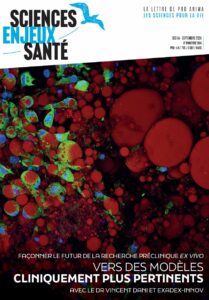
Networks
PARC — external stakeholder Partnership for the Assessment of Risks from Chemicals
Partnership for the Assessment of Risks from Chemicals
Coordinated by ANSES, the European Partnership was designed to address the major challenges associated with innovative chemical risk assessment. Its overall objective is to consolidate and strengthen European research and innovation capacity for chemical risk assessment in order to protect human health and the environment. With around 200 participating organizations from across Europe, including three European agencies, and a total budget of over €400 million, PARC is one of the largest projects of its kind. PARC is a 7‑year public-public partnership.
National hubs have been created allowing any organization, federation, association, industrialist, public policy actor in connection with chemical risk and exposure to chemical substances to invest in this collaborative project ; these hubs thus bring together PARC’s external stakeholders.
ECEAE — member The European Coalition to End Animal Experiments
The European Coalition to End Animal Experiments
Gathering more than fifteen organizations across the European Union, the ECEAE works for the transition towards scientific innovation without animal testing, for modern human science and progressive legislation. As an umbrella organization, the ECEAE has stakeholder status with official EU bodies. The organization works with the European Commission, MEPs and the general public to ensure that laboratory animals are on the European political agenda.
CAP — member Convergence Animaux Politique
Convergence Animaux Politique
Founded in 2017 by Melvin Josse. CAP mission is to integrate the protection of animals and their environment into the law, through effective and coordinated political action, in particular by raising awareness among all political decision-makers, by creating and strengthening links between political and NGOs, and by informing citizens and keeping the public debate alive. CAP focuses its action on the national scale (deputies, senators, government, administration, etc.) but it also has repercussions on the European scale, as France’s position evolves on this issue.


